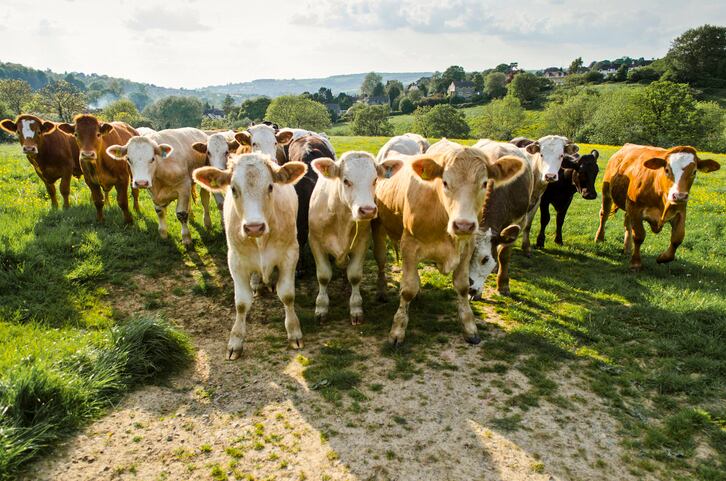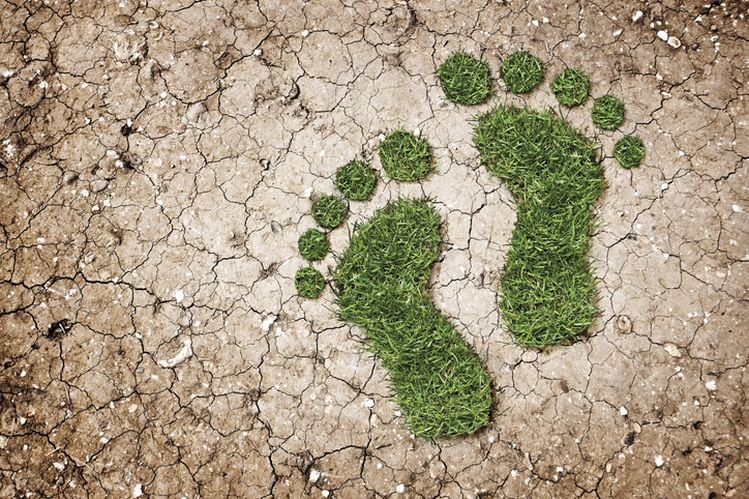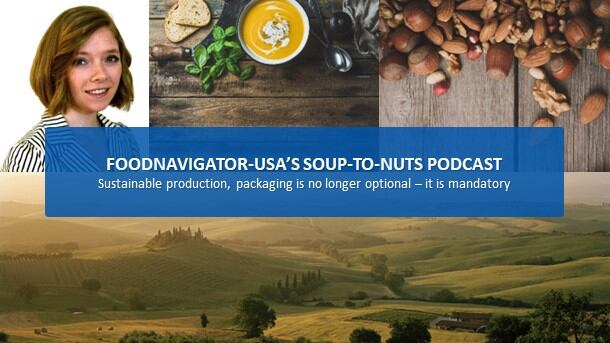A peer reviewed study conducted by scientists at the University of Wisconsin-Madison and funded by Organic Valley published this month in the Journal of Cleaner Production found organic dairy farms produced 24% fewer greenhouse gas emissions than conventional US dairy due in large part to carbons sequestration techniques associated with organic pastures and grazing.
The study reviewed the unique practices of 14 Organic Valley farms across the US and found carbon sequestration from pasture as well as forage and crop production reduced net emissions 15% on average. Farms that implemented more than one practice achieved on average a 30% reduce in emissions and up to 40%.
The researchers hypothesized that the dramatic impact of grazing and pasture management on carbon sequestration is likely due to pasture and forages having more developed root systems that can store more carbon below ground than other crops traditionally involved in dairy farming.
The two-year assessment completed in early 2022 also found management practices such as the type of bedding used for animals, tillage, avoidance of synthetic crop inputs and the use of manure as a fertilizer also reduced emissions on the farms.
“We are proud that farms in our cooperative average the lowest known carbon footprint of any US dairy supply,” Nicole Rakobitsch, director of sustainability at Organic Valley, said in a statement.
However, she added, “We are not going to rest on that outcome. We are committed to helping our farmers and all our dairy continually less our GHG emissions,” not only because it is “the right thing to do,” but because “consumers are looking for food that is good for the planet and their health.”
To ensure incremental and continual improvement towards its ultimate goal of becoming carbon neutral by 2050, Organic Valley has set milestones, including 15% progress by 2030 and 30% by 2035.
Additional support from funding to nutrition
With a baseline established by this study, Organic Valley is pursuing its goal through a variety of approaches, including a recently launched Powering the Good Loan Fund to help its farmers negotiate the best loan terms for energy efficiency and renewable energy installations, according to the co-op.
It is also exploring how cows’ diets impact greenhouse gas emissions and the extent to which adding red and brown seaweed, garlic and other dietary supplements may reduce the among of gas cows emit.
Read more about the study at our sister title DairyReporter here.
Source: Journal of Cleaner Production
'Farm level environmental assessment of organic dairy systems in the US'
Published 20 August 2022
https://doi.org/10.1016/j.jclepro.2022.132390
Authors: Horacio A. Aguirre-Villegas, Rebecca A. Larson, Nicole Rakobitsch, Michel A. Wattiaux, Erin Silva



